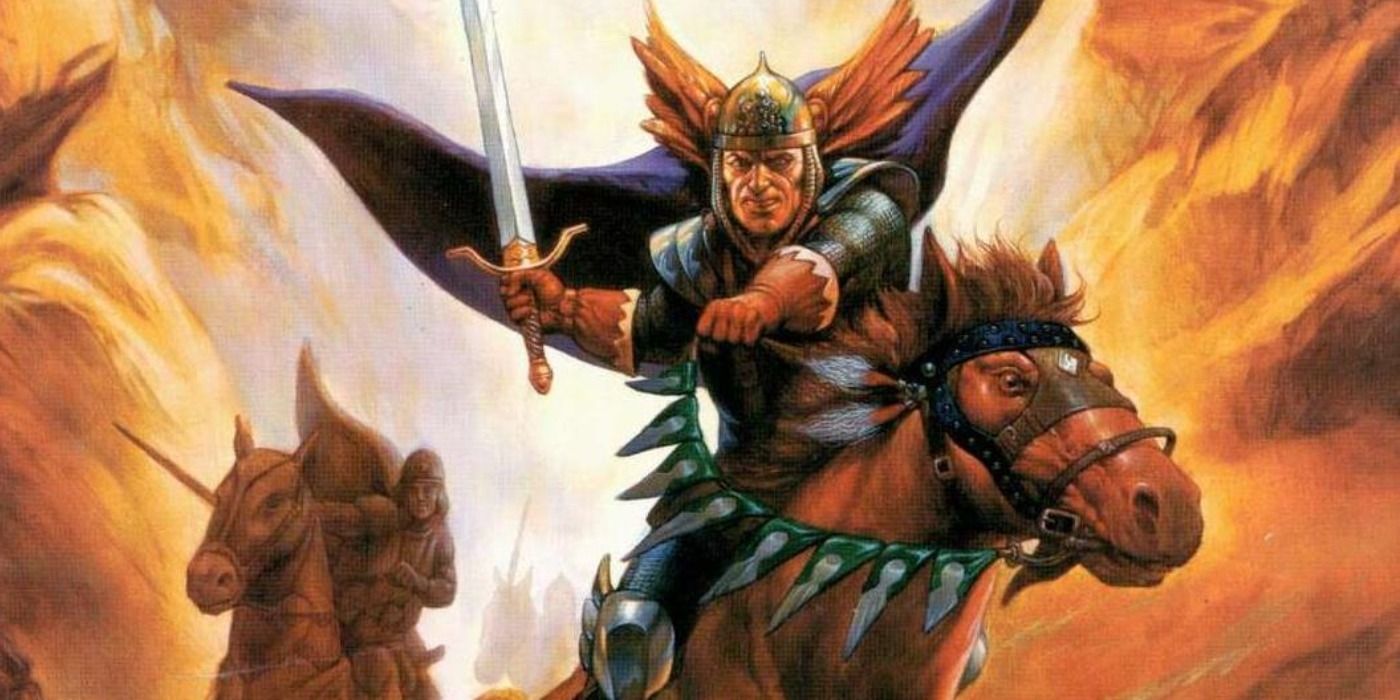There have been numerous editions of Dungeons & Dragons released over the years, but there was a time when there were two versions of the game existing at once, which was part of a ploy to prevent one of the creators from earning royalties. The first version of Dungeons & Dragons was released in 1974 and its creators were Dave Arneson and Gary Gygax.
The original iteration of Dungeons & Dragons was a landmark game that helped create the tabletop RPG genre, but it was very rough in terms of game balance and there were issues with the rules which the developers had never anticipated. As such, it made sense to collect all of the feedback from the fans and release another edition that improved upon the rules to make the game more fun for players and dungeon masters alike. Dungeons & Dragons quickly became the source of controversy, with parents groups and news outlets claiming that the game promoted Satanism, but the love for tabletop gaming overcame these ridiculous claims and D&D survived.
Click the button below to start this article in quick view.
In 1977, Dungeons & Dragons broke into two separate games, each one headed by a different creator of the first. Dave Arneson was the figure behind Dungeons & Dragons Basic Set, while Gary Gygax created Advanced Dungeons & Dragons. Each version of the game was tailored to a different audience, with the Basic version aimed at new players who were new to Dungeons & Dragons and tabletop gaming, while Advanced was meant for people who were already familiar with the game and wanted to expand their experience with new rules. The two systems were incompatible and it wasn’t intended for players to transfer from one to the other.
A problem quickly arose due to the two versions of Dungeons & Dragons, as Arneson wasn’t given any royalties from Advanced Dungeons & Dragons. Gygax refused to pay any royalties to Arneson, arguing that Advanced Dungeons & Dragons was different enough from the original version of the game that it had become a separate entity. Arneson disagreed and this led to a lawsuit in 1979, the details of which can be found on Justia. The case lasted for two years, with both sides arguing the merits of Arenson’s contributions to the development of Dungeons & Dragons and how it related to the later versions of the game. In the end, Arneson won. According to DM David, Arneson won a 2.5% royalty on the cover price of all core Advanced Dungeons & Dragons books.
Gygax would go on to have his own legal troubles with the new owners of the game, like when he wasn’t allowed to release another Dungeons & Dragons-style game with D&D as its initials. This wouldn’t be the first (or the last) time Dungeons & Dragons had to endure legal issues, either, as the game also caused a stir with the owners of The Lord of the Rings. There was a messy lawsuit involving Dungeons & Dragons and Lord of the Rings, due to concepts that the game stole from the books.
In 1997, Wizards of the Coast bought TSR (the company that owned Dungeons & Dragons) and CEO Peter Adkison purchased the intellectual rights to D&D from both Arneson and Gygax, allowing the game to be united once more. This led to the creation of the third edition of Dungeons & Dragons, which dropped the Basic and Advanced names. The game has kept the Dungeons & Dragons name to this day. Arneson and Gygax have both since passed on, but Dungeons & Dragons is more successful than ever. The two men might have had their differences, but the game they created still lives on in the hearts and minds of fans around the world.

